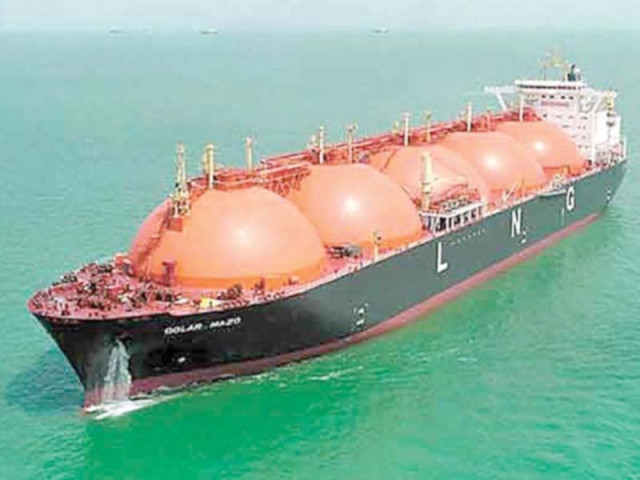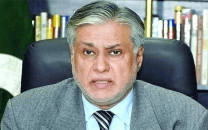Presenting facts: Abbasi to brief NAB on LNG import and its prices
Says he has overseen all LNG-related activities since taking office

A senior government official insisted that all Public Procurement Regulatory Authority rules had been followed in the process of granting the LNG terminal contract. PHOTO: FILE
The National Accountability Bureau (NAB) has decided to seek a briefing from the minister of petroleum and natural resources on the award of a liquefied natural gas (LNG) terminal contract, LNG import and its prices.
The decision came after Petroleum Minister Shahid Khaqan Abbasi sent a letter to the anti-corruption watchdog, claiming he had supervised the entire process for the award of the terminal contract to Elengy Terminal Pakistan Limited (ETPL), say officials aware of the development.
The briefing will be held at the petroleum ministry in the presence of representatives of Sui Southern Gas Company (SSGC) and Pakistan State Oil (PSO) - the two important stakeholders in LNG import and its consumption.
Earlier, NAB had written a letter to Inter State Gas Systems (ISGS), which had been working as a coordinator, for a presentation on the LNG terminal contract process. Later, it withdrew the letter.
According to officials, the main focus of investigation was on the LNG services agreement between SSGC and ETPL, the terminal operator and supplies brought by PSO.
In the letter, the petroleum minister told NAB authorities that his ministry had overseen all LNG-related activities by the associated companies.
“I have personally supervised all LNG schemes since I took office in June 2013,” he said and suggested that a NAB team would come to the ministry to listen to the facts about the terminal contract.
Role of ISGS
According to Abbasi, ISGS - a state-owned company with expertise in handling large infrastructure projects - was tasked with facilitating the re-gasification terminal building process, which led to the completion of Pakistan’s first LNG terminal in a record time of less than 11 months. The project is now internationally acknowledged as a success story.
Talking to The Express Tribune, a senior government official insisted that all Public Procurement Regulatory Authority (PPRA) rules had been followed in the process of granting the terminal contract.
He recalled that 16 companies submitted bids in response to the tender floated by ISGS and of these two qualified for technical evaluation. One of them could not clear the technical evaluation and the remaining one - ETPL - qualified for the financial bid. “PPRA rules do not disallow single-party participation in financial bids,” he said.
Role of SSGC
The official stressed that ISGS’s role was limited to facilitation and coordination and after opening of the financial bid, the process was completed by SSGC, a procurement agency.
The petroleum minister told NAB that ETPL, which was selected through a PPRA-compliant competitive bid process by SSGC, would recover its investment and make profit with the help of a re-gasification tolling fee of $0.66 per mmbtu, including operating costs, over the 15-year lifetime of the project.
This was one of the lowest re-gasification fees in the world despite the fact that Pakistan was considered a high-risk country by international contractors, he said.
Role of PSO
According to the senior government official, the purchase of LNG from Qatar by PSO has raised questions of transparency. PSO brought six cargoes from Qatar’s spot market without seeking bids, prompting NAB to investigate whether it was in line with the PPRA rules.
Investigators were also probing the price at which LNG was imported from Qatar. The NAB team will seek answers to these questions during the briefing at the petroleum ministry, which is likely to be held next week.
Published in The Express Tribune, October 9th, 2015.
Like Business on Facebook, follow @TribuneBiz on Twitter to stay informed and join in the conversation.



















COMMENTS
Comments are moderated and generally will be posted if they are on-topic and not abusive.
For more information, please see our Comments FAQ